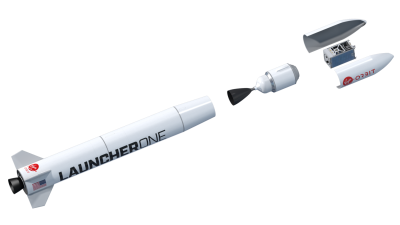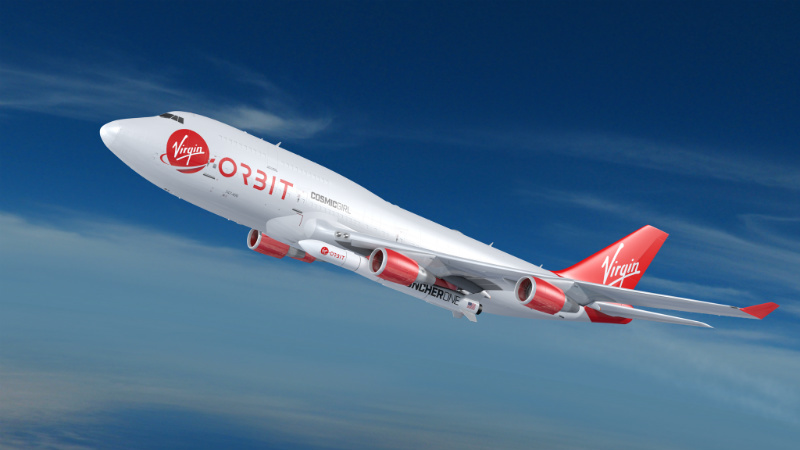It looks as though things may have gone from bad to worse at Virgin Orbit, the satellite carrying spin-off of Richard Branson’s space tourism company Virgin Galactic. After a disappointing launch failure earlier in the year, CNBC is now reporting the company will halt operations and furlough most employees for at least a week as it seeks new funding.
It’s no secret that company has struggled to find its footing since it was formed in 2017. On paper, it was an obvious venture — Virgin Galactic already had the White Knight Two carrier aircraft and put plenty of R&D into air-launched rockets, it would simply be a matter of swapping the crewed SpaceShipTwo vehicle for the LauncherOne orbital booster. But upgrades to the rocket eventually made it too large for the existing carrier aircraft, so the company instead purchased a Boeing 747 and modified it to lift their two-stage rocket out of the thick lower atmosphere.
 Despite reshuffling plans and other setbacks, Virgin Orbit managed to put four payloads into low-Earth orbit since their first successful launch in 2021. Unfortunately, they’ve been unable to achieve the sort of launch cadence necessary to remain competitive in the market. For comparison Rocket Lab’s Electron rocket, arguably LauncherOne’s closest peer in terms of price and capability, performed 16 successful launches in the same time period.
Despite reshuffling plans and other setbacks, Virgin Orbit managed to put four payloads into low-Earth orbit since their first successful launch in 2021. Unfortunately, they’ve been unable to achieve the sort of launch cadence necessary to remain competitive in the market. For comparison Rocket Lab’s Electron rocket, arguably LauncherOne’s closest peer in terms of price and capability, performed 16 successful launches in the same time period.
Still, Virgin Orbit hoped to carve out a niche for themselves by being able to launch payloads from the United Kingdom, specifically from the newly-christened Spaceport Cornwall. The UK Space Agency, eager to establish a domestic launch capability, even picked up the bill for improvements to the Spaceport in anticipation of Virgin Orbit using it as a base of operations. The January 9th launch marked the first orbital flight ever attempted from British soil, making its failure all the more stinging.
Even in the increasingly competitive “smallsat” market, there’s demand for the unique capabilities offered by Virgin Orbit’s air-launch approach. If they can steer their way through this crisis and increase their launch rate, there’s undoubtedly a steady revenue stream ahead of them. But given the operational struggles that have plagued all of Virgin’s space aspirations, we’d say there’s good reason to be concerned about the future of the fledgling company.
















Someone else had pointed out that it appears that Richard Branson ticked off “go to space” from his bucket list and thus abandoned the company.
Entrepreneurs rarely throw endless cash at ventures they don’t see as commercially viable entity. Regardless of how good the technical solution is, or isn’t, if you can’t keep up with a competitor, or can’t find customers, the safest thing to do is walk away.
Which is why commercial space travel will always be locked into low earth orbit, and only that because of previous subsidizing.
Only the ones that keep their fortunes know when to quit.
There are plenty that dont listen to ANYONE but their sycophants once they’ve made their money because THEY had a good idea ONCE.
And their fortunes dwindle but it’s always someone elses fault.
I’ve worked for a couple. Getting out before the good money was gone. :)
Virgin Orbit is about _small_ satellites,and a separate company from Virgin Galactic which is dedicated to crewed flight. This article is about the former.
Deserved to be mentioned is that
– Virgin Galactic is dedicated purely to *SUBorbital* (s)crewed flights while
– Virgin Orbit is dedicated purely to *orbital* noncrewed flight with 4 successful flights already under their belt.
There is no practical use whatsoever for Galactic’s suborbital flights which couldn’t be done masively cheaper on a suborbital sounding rocket or on a parabolic flight with an airliner. It is just turistic few minute BS like Blue Origin.
And Virgin Orbit despite some successes had been dead on arrival when they finally started launching when customers could already get dedicated launch for half the cost from very well proven Rocketlab and even cheeper from SX when rideshare was an option.